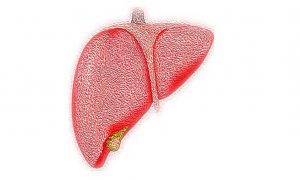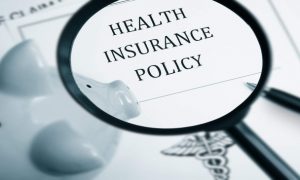Healthy eating is a way of assuring that your body receives the macronutrients and micronutrients it requires on a daily basis. In addition to eating a healthy and balanced diet, it is critical to track your calories. Dr. Saroja Koppal, Fertility Consultant Nova IVF Fertility Hyderabad says “A well-balanced diet has a significant impact on fertility. When you decide to undergo IVF treatment, it is critical to keep a close eye on your diet. Obesity and low body weight have been shown to reduce success rates and have a negative impact on fertility. To combat these issues, a healthy diet is a good place to start. Paying attention to your diet and essential nutrients will help your body carry a pregnancy more easily.”
“The diet of the mother at conception is a major determinant of embryonic development. Prior to pregnancy, the maternal diet is important for optimizing nutritional status, which is essential for maintaining a healthy pregnancy and supporting the developing foetus.” She adds.
Dr. Saroja Koppal says “Nutrition during pregnancy is critical for gamete function and placental development. Several nutrients have previously been identified as being important for prenatal neurodevelopment. Inadequate folate intake, for example, has been linked to altered DNA methylation and impaired fetal brain development. Folic acid supplementation before conception and during the first trimester of pregnancy was found to be effective in preventing neural tube defects.”
Foods You Need To Restrain From When You Are Undergoing IVF
Avocado
They have a high content of healthy fats, folate, potassium, copper, vitamin K, vitamin E, and vitamin C helps in the development of the skin, brain and tissues of the growing foetus.
Food High In Zinc
If your hormones, which are responsible for regulating the reproductive process in the body, are at an appropriate level, it will have a positive effect on the entire process. Zinc aids in the regulation of hormone levels. As a result, meeting your daily zinc requirement of 15 mg will benefit you. You can also take zinc supplements, but natural methods of obtaining nutrients are preferred.
Healthy Fats
Healthy fats are essential for hormone balance, immune function, and inflammation management. Oily fish, nuts, eggs, and avocado are all good sources of omega-3 fatty acids. Oily fish, including salmon, mackerel, herring, anchovies, and sardines, are the best sources of omega-3 fatty acids, including DHA. Cooking with olive oil also provides healthy fats.
Green Leafy Vegetables
They contain essential nutrients like calcium, iron, folate which are helpful in proper growth during pregnancy. They provide many of the essential nutrients you need.
Protein
Protein such as tofu, beans, nuts, soybeans are healthy foods that can balance nutrition and ensure normal growth.
Fiber-Rich Foods
Fibre-rich foods such as fruits, vegetables, oats, cereals, etc helps to provide necessary nutrition.
Salmon
Salmon is a great food to eat if you want to increase your fertility because it contains omega-3 fatty acids and DHA, which are important for babies’ brain and eye development.
Broccoli
Broccoli is an efficient way to pack vitamins, fend off constipation, and reduced the risk of low birth weight.
Potatoes
Potatoes provide essential vitamins such as vitamin B and Vitamin E.
Banana
Banana is rich in Vitamin B6 and helps in the regulation of the menstrual cycle.
Pineapple
Pineapple helps in providing manganese to boost reproductive hormones.
Yogurt
It contains high-quality protein and calcium and helps to meet the needs of pregnancy and promotes strong bones. It can contain probiotic bacteria which can help in gut health.
Folic Acid
Folic acid along with certain vitamins, helps in the healthy development of a child’s brain and spinal cord.
Dairy
Consume one or two servings of whole milk or other full-fat dairy foods per day, such as yogurt, and less non- and low-fat dairy.
Vitamin B12
Vitamin B12 deficiency is linked to negative maternal and neonatal outcomes such as spontaneous abortions, preeclampsia, low birth weight, and developmental anomalies. Animal products such as meat, eggs, dairy, and fish are good sources of vitamin B12.
Vitamin B6
An adequate supply of vitamin B6 during pregnancy is essential for neural development, fetal neurotransmitter synthesis, and fetal metabolism. Poor vitamin B6 status has been linked to lower conception rates and an increased risk of miscarriage. Fish, meat, poultry, eggs, legumes, and nuts are all good sources.
Some Of The Things That Should Be Avoided Are Listed Below
Alcohol And Carbonated Beverages
Not only should women who are trying to conceive abstain from alcohol, but so should their partners. Alcohol and carbonated beverages have a negative impact on sperm production and may result in abnormal sperm. Diet drinks also contain aspartame, which has an effect on sperm count and quality.
Processed Meat
When trying to conceive, avoid processed meats such as salami, sausages, bacon, hotdogs, and so on. Processed food contains more hormonal residue than unprocessed meat. This can impair sperm production and result in sperm with low motility.
Raw Eggs
They are used in many food products such as mayonnaise, biscuit cream, and salad dressing. However, there is a virus known as salmonella virus that is present in raw eggs and can cause food poisoning. As a result, it is advised to avoid eating raw eggs.









































